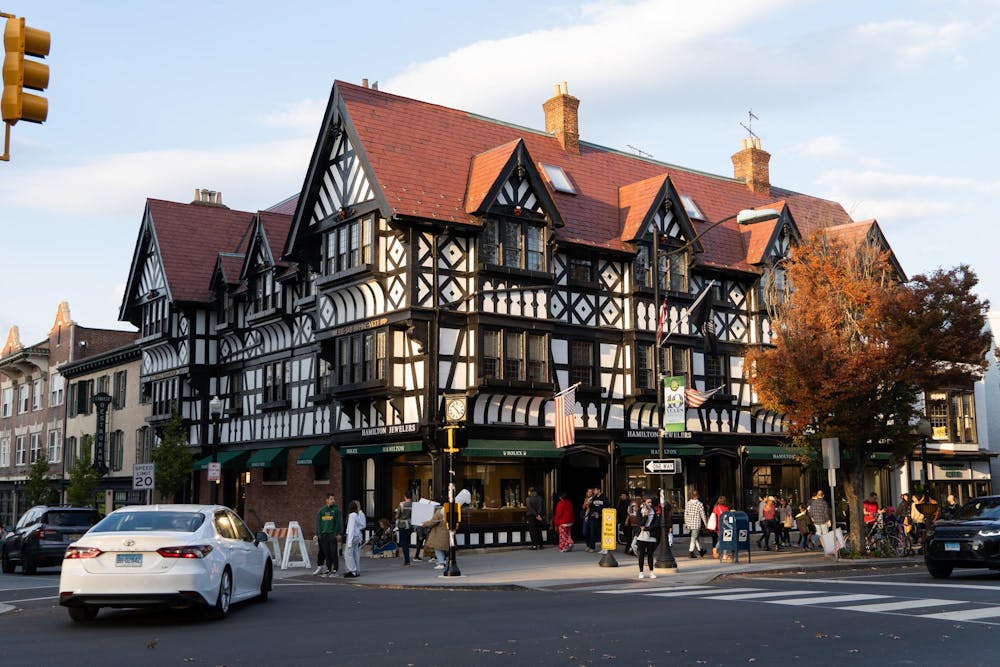Picture this: the year is 2017, the Tax Cuts and Jobs Act (TCJA) had just passed into law under President Donald Trump, and elite institutions across the nation were in an uproar. For the first time since the 1950s, certain colleges and universities were forced to bear a 1.4 percent excise tax on their endowment investment income. As the law only pertains to private schools with endowments valued above $500,000 per student, only 0.8 percent of American institutions qualified at the time of the law’s passage. Yet, in 2022, these 1 percent of universities raised $244 million for the federal government through this excise tax.
Though the TCJA itself is deeply flawed in several respects, its imposition nonetheless raises an important consideration: are excise taxes for private institutions like Princeton necessary? As TCJA’s scheduled expiration date approaches in 2025, the excise tax will meet its due elimination accordingly. In the months that follow, it is imperative that we at Princeton contend with and advocate for a more structured, progressive excise tax on the University’s endowment at large. In addition to other benefits, a system could primarily work to channel institutional money and resources back into the surrounding township under an organized system of federal jurisdiction and oversight.
At present, the total endowments at institutions of higher education in the United States sits around $836 billion. Nearly a quarter is held by Ivy League schools and the 25 largest private and 25 public colleges maintain control over two-thirds of these funds. As of June 2024, Princeton’s endowment is valued around $34.1 billion. Even among other elite universities, this number is enormous and consistently ranks within the top five highest funds in the country. As the endowment only continues to increases, the University benefits from a number of external factors in due turn.
Like many colleges and universities in the United States, Princeton falls under the realm of Internal Revenue Code Section 501(c)(3), which grants tax exemptions to institutions that serve an educational mission. As a state governmental entity, a non-profit, and an academy of higher education, Princeton is not only exempt from federal income tax, but also property tax and sales tax on purchased goods. Consequently, for decades, the University’s endowment was unhindered by the many federal barriers of tax regulation: until the TCJA, that is.
The University has a very real motivation to oppose the continuation of the TCJA or even the imposition of a new investment income excise tax. Each fiscal year, Princeton pours hundreds of thousands of dollars into lobbying efforts, some of which is targeted against legislation seeking to impose taxes on universities. Indeed, just last year, the University spent nearly $500,000 on lobbying alone. Beyond the TCJA, Princeton has expanded several lobbying campaigns against other laws that propose drastic increases for the excise tax. Examples include the Higher Education Accountability Tax Act, the WEST Act, the Protecting Endowments from Our Adversaries Act, and various proposed amendments to the Internal Revenue Code of 1986.
Regardless, we must continue to advocate for a reformed and standardized tax structure for private universities. Most critically, as opposed to the current legislative measures that are being advanced in the House and the Senate, we must consider a progressive tax structure that fundamentally prioritizes how wealthier universities can contribute back to their surrounding communities. It is essential to ensure that neighboring communities, townships, and local governments are able to benefit from the enormous endowments of the universities they house.
Given that larger universities like Princeton tend to raise the property taxes, general expenses, and cost of living in the surrounding area, it becomes all the more relevant to consider how a tax might sustain and give back to their communities in due turn. A tax system, where a portion of the revenue is re-distributed for social good at the discretion of the local government, could have multiple benefits in the town of Princeton. After all, at present, Princeton is the fourth most expensive college town in the nation. Under a system of federal regulation, the reallocation of Princeton funds into the county could have demonstrable economic impacts, even if the tax rate continues to remain the same as at present. In standardizing a system of federal regulation for private universities, the top 1 percent of universities who are presently impacted by the TCJA could expand their philanthropic contributions significantly.
There are several other associated benefits to consider as well. Increased federal regulation can further encourage greater transparency for endowment investment practices and a greater concentration of resources around core educational and research missions. The implementation of a progressive tax system also adjusts the tax accordingly to account for the differences in financial ability between institutions.

Naturally, the impact of this endowment on Princeton’s campus is significant. As President Eisgruber has established time and time again, the endowment does not merely operate as a reserve “rainy day” fund, but rather a “significant and growing portion” of the University’s daily operations. However, it is equally essential to contend with the necessity of an excise tax that maximizes institutional and societal benefits accordingly.
Wynne Conger is a sophomore and prospective SPIA major from Bryn Mawr, Pa. She can be reached by email at wc2918[at]princeton.edu. Her column “Popping the Bubble” runs every three weeks on Friday. You can read all of her columns here.









